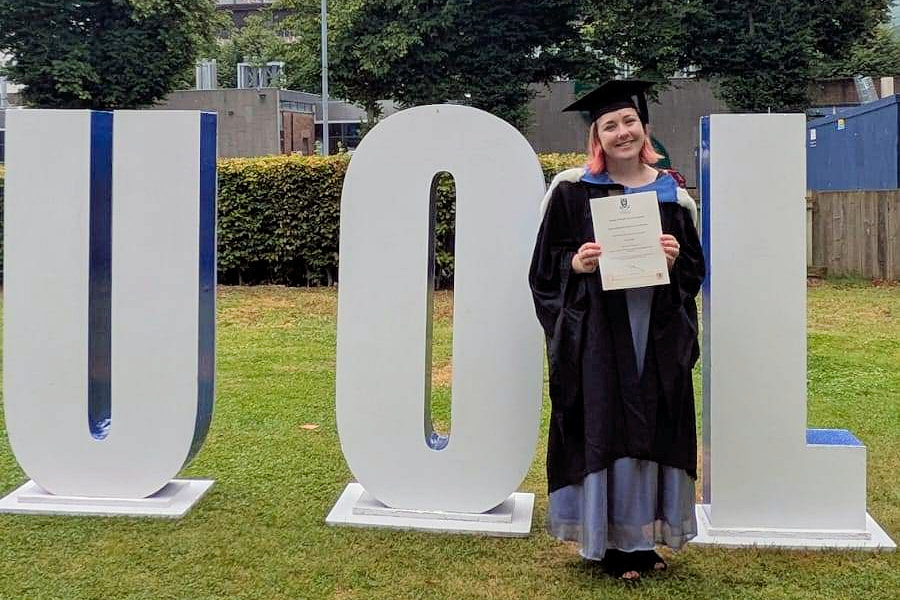
Jemma Clarke recently graduated from the School of Biosciences with a BSc in Biological and Medical Sciences. Last year she undertook a summer research placement with Professor Dan Rigden. Here she tells us about her experiences.
Between the second and third year of my studies, I had the opportunity to spend six weeks on a research placement in the Department of Biochemistry, Cell and Systems Biology under the supervision of Professor Dan Rigden.
During the placement, I spent my time investigating phosphoglycerate mutase 1 (PGAM1) which is a key enzyme in glycolysis and is overexpressed in tumours. Glycolysis is a process in cellular respiration, breaking down glucose and releasing energy to be used by cells. Using a machine learning tool called AlphaFold3, we were able to generate models of PGAM1 with a specific post-translational modification that is found in cancer. These models showed enhanced binding of a molecule called phosphoenolpyruvate (PEP), which upregulates PGAM1. This means that a higher rate of glycolysis occurs, giving these cells, which are often cancer cells, more energy to grow. This gives us vital information about the mechanisms of how some cancers grow and spread, which we could use to develop new treatments in the future. Furthermore, the changes in the models generated by AlphaFold3 suggest that we may be able to use this tool to investigate other proteins that are affected by post-translational modifications.
After the placement, I wrote up the project with the help of James Colcombe and Professor Dan Rigden. 'AlphaFold 3-enabled in silico exploration of PGAM1 interactions in cancer' has recently been published as a pre-print on BioRxiv.
Not only did I learn lots of new computational biology skills, such as using PyMOL and molecular docking servers, but also I learned a lot about the research process and what it is like to work on an independent research project but with the support of the lab group! Completing a summer research placement really prepared me for my final year research project and helped me decide to pursue further research after graduation. I feel very proud to have work with my name on it out in the world!